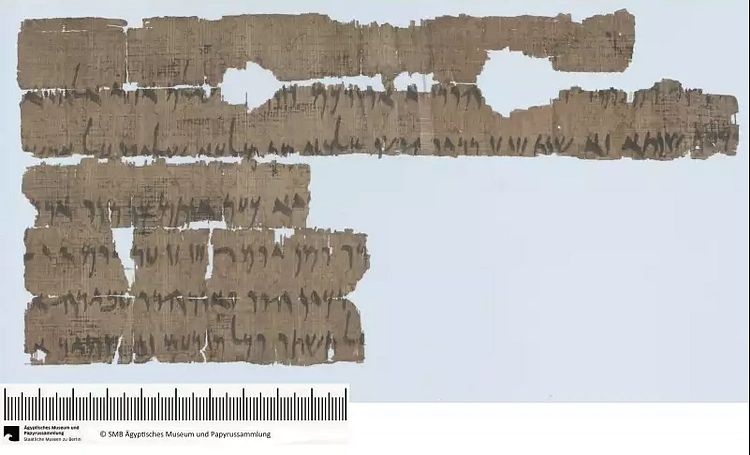The Passover and the Feast of Unleavened bread was instituted during the Exodus.
Exod 12:11-13 (KJV)
11 And thus shall ye eat it; [with] your loins girded, your shoes on your feet, and your staff in your hand; and ye shall eat it in haste: it [is] the LORD’s passover.
12 For I will pass through the land of Egypt this night, and will smite all the firstborn in the land of Egypt, both man and beast; and against all the gods of Egypt I will execute judgment: I [am] the LORD.
13 And the blood shall be to you for a token upon the houses where ye [are]: and when I see the blood, I will pass over you, and the plague shall not be upon you to destroy [you], when I smite the land of Egypt.
Exod 12:14-17 (KJV)
14 And this day shall be unto you for a memorial; and ye shall keep it a feast to the LORD throughout your generations; ye shall keep it a feast by an ordinance forever.
15 Seven days shall ye eat unleavened bread; even the first day ye shall put away leaven out of your houses: for whosoever eateth leavened bread from the first day until the seventh day, that soul shall be cut off from Israel.
16 And in the first day [there shall be] a holy convocation, and in the seventh day there shall be a holy convocation to you; no manner of work shall be done in them, save [that] which every man must eat, that only may be done of you.
17 And ye shall observe [the feast of] unleavened bread; for in this selfsame day have I brought your armies out of the land of Egypt: therefore shall ye observe this day in your generations by an ordinance forever.
Lev 23:5-6 (KJV)
5 In the fourteenth [day] of the first month at even [is] the LORD’s passover.
6 And on the fifteenth day of the same month [is] the feast of unleavened bread unto the LORD: seven days ye must eat unleavened bread.
Passover, Hebrew Pesaḥ or Pesach, in Judaism, holiday commemorating the Hebrews’ liberation from slavery in Egypt and the “passing over” of the forces of destruction, or the sparing of the firstborn of the Israelites, when the Lord “smote the land of Egypt” on the eve of the Exodus. Passover begins with the 15th and ends with the 21st (or, outside of Israel and among Reform Jews, the 22nd) day of the month of Nisan (March or April). On these seven (or eight) days, all leaven, whether in bread or other mixture, is prohibited, and only unleavened bread, called matzo, may be eaten. The matzo symbolizes both the Hebrews’ suffering while in bondage and the haste with which they left Egypt in the course of the Exodus. Passover is also sometimes called the Festival of Unleavened Bread.
https://www.britannica.com/topic/Passover
The holiday of Passover (Pesach in Hebrew) is perhaps one of the most central to Jewish life and history. More widely observed than any other holiday, Passover celebrates the biblical account of the Israelites’ redemption and escape from 400 years of Egyptian slavery. Holiday rituals include a dramatic retelling of the Exodus story and many unique food traditions. We come together with friends and family to celebrate the great lessons of the story: the blessing of freedom and the reminder that since we were once slaves and were freed, it is our responsibility to work for freedom for all people, everywhere.
https://reformjudaism.org/jewish-holida … er-history
One of the earliest attestations of the celebration of the Passover is in the Elephantine papyri that dates to late 5th century BC.

The “Passover letter” of 419 BCE (discovered in 1907), which gives detailed instructions for properly observing the holiday of Passover, is in the Egyptian Museum of Berlin.
https://en.wikipedia.org/wiki/Elephanti … nd_ostraca
A papyrus letter, written in Aramaic, from the fortified island of Elephantine in Egypt. The letter was written c. 419 BCE by a Jewish man named Hananiah and is addressed to his brother Jedoniah and the rest of the Jews garrisoned at Elephantine. The letter states that King Darius II (r. 424 – 404 BCE) has instructed the Persian satrap Armases (c. 5th Century BCE) to allow the Jewish garrison at Elephantine to observe a seven-day festival of unleavened bread. This is believed to be an early reference to observance of the Passover holiday.
https://www.worldhistory.org/image/1046 … ephantine/
This papyrus fragment is from a letter to the leader of the Elephantine community in Egypt explaining the customs and practices of the Jewish festival of Passover. The letter is written in Aramaic, the language of the Jews in the Persian and Hellenistic periods. The word “Passover” does not survive in the text, but various practices associated with the festival, such as eating unleavened bread and refraining from work, are mentioned. These practices are consistent with rules set out in the Torah and with accepted Jewish practice.
https://www.bibleodyssey.org/en/tools/i … er-papyrus
Some of these details can be corroborated, and to some extent amplified, in extrabiblical sources. The removal (or “sealing up”) of the leaven is referred to in the Elephantine papyri, an Aramaic papyrus from 5th century BCE Elephantine in Egypt.[37] The slaughter of the lambs on the 14th is mentioned in The Book of Jubilees, a Jewish work of the Ptolemaic period, and by the Herodian-era writers Josephus and Philo. These sources also indicate that “between the two evenings” was taken to mean the afternoon.[38] Jubilees states the sacrifice was eaten that night,[39] and together with Josephus states that nothing of the sacrifice was allowed to remain until morning.[40] Philo states that the banquet included hymns and prayers.
https://en.wikipedia.org/wiki/Passover
Text of the Passover letter at:
https://web.archive.org/web/20070225103 … apyri.html
https://debatingchristianity.com/forum/viewtopic.php?p=1078014#p1078014
